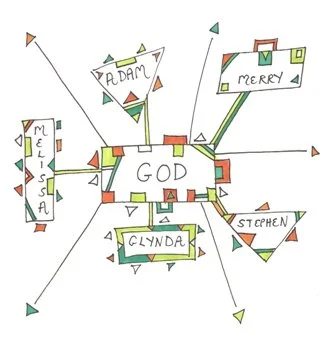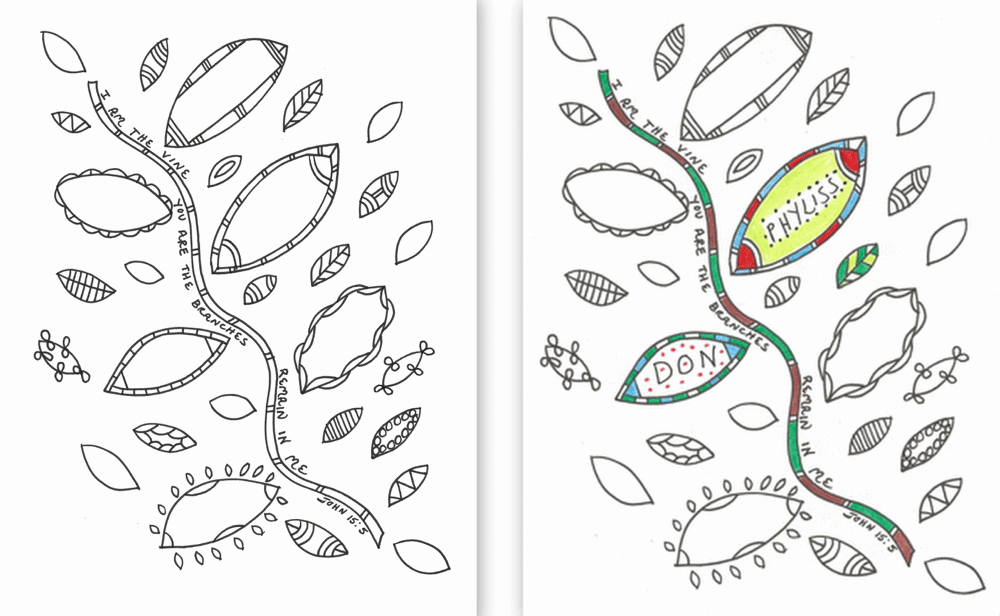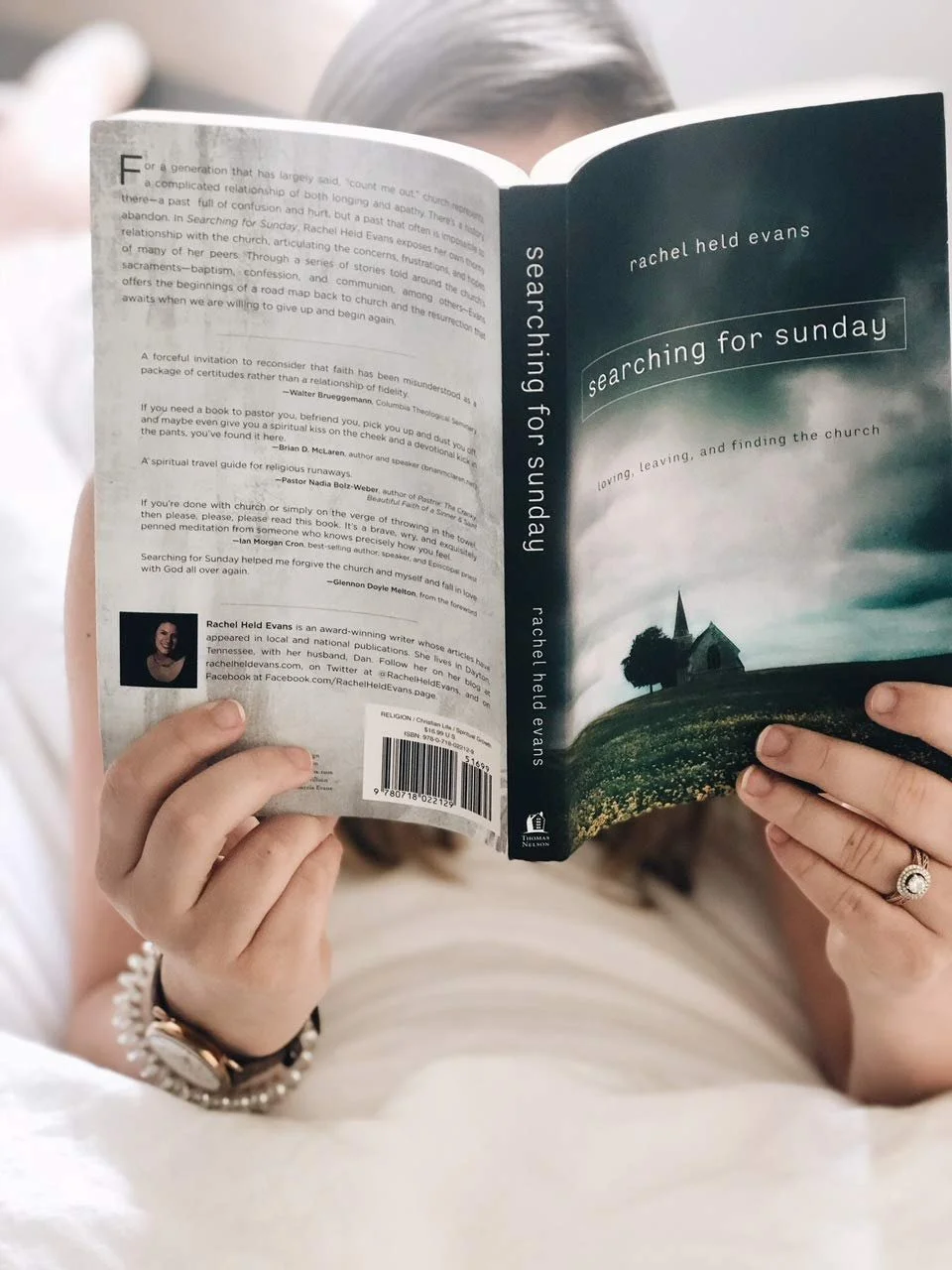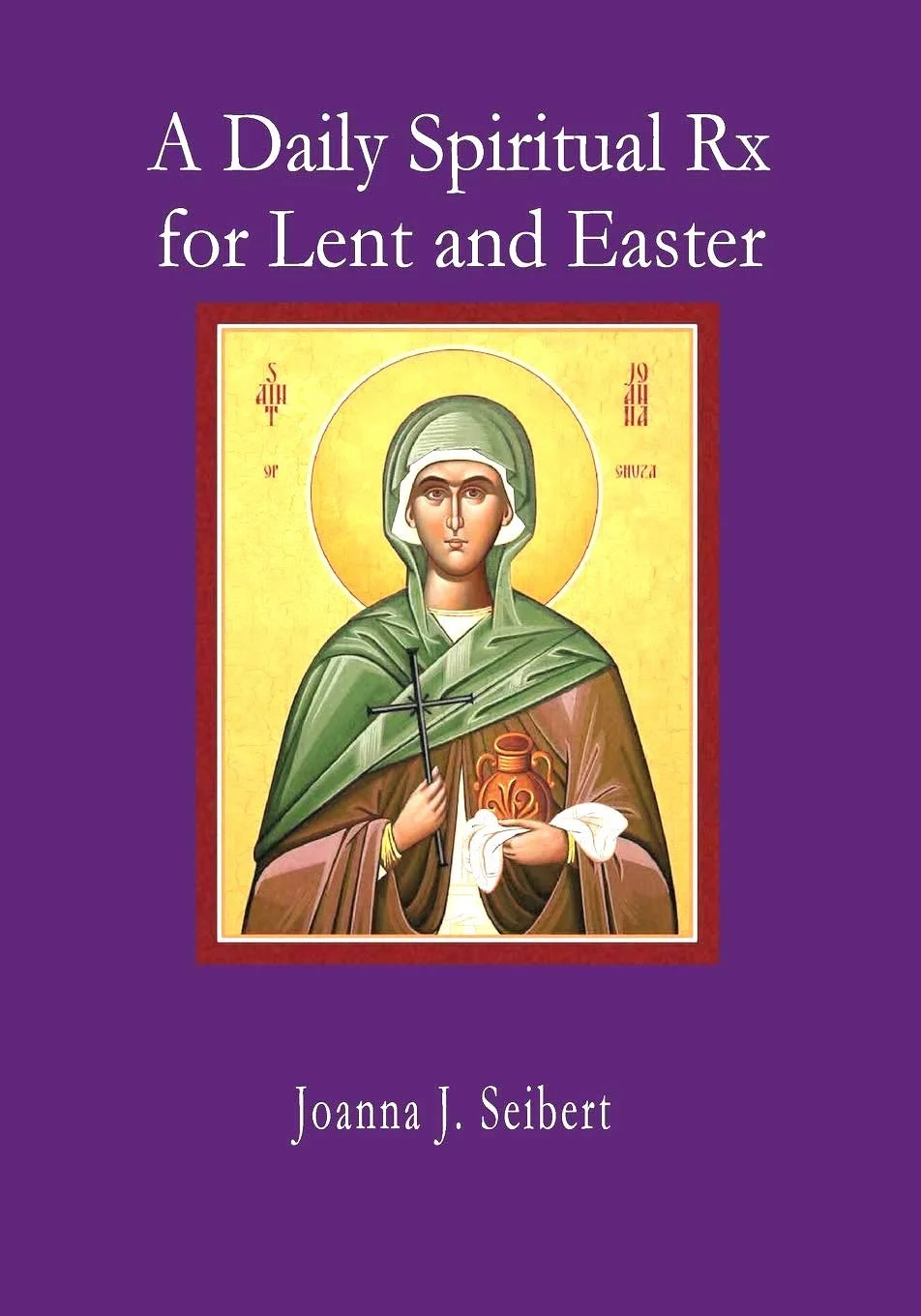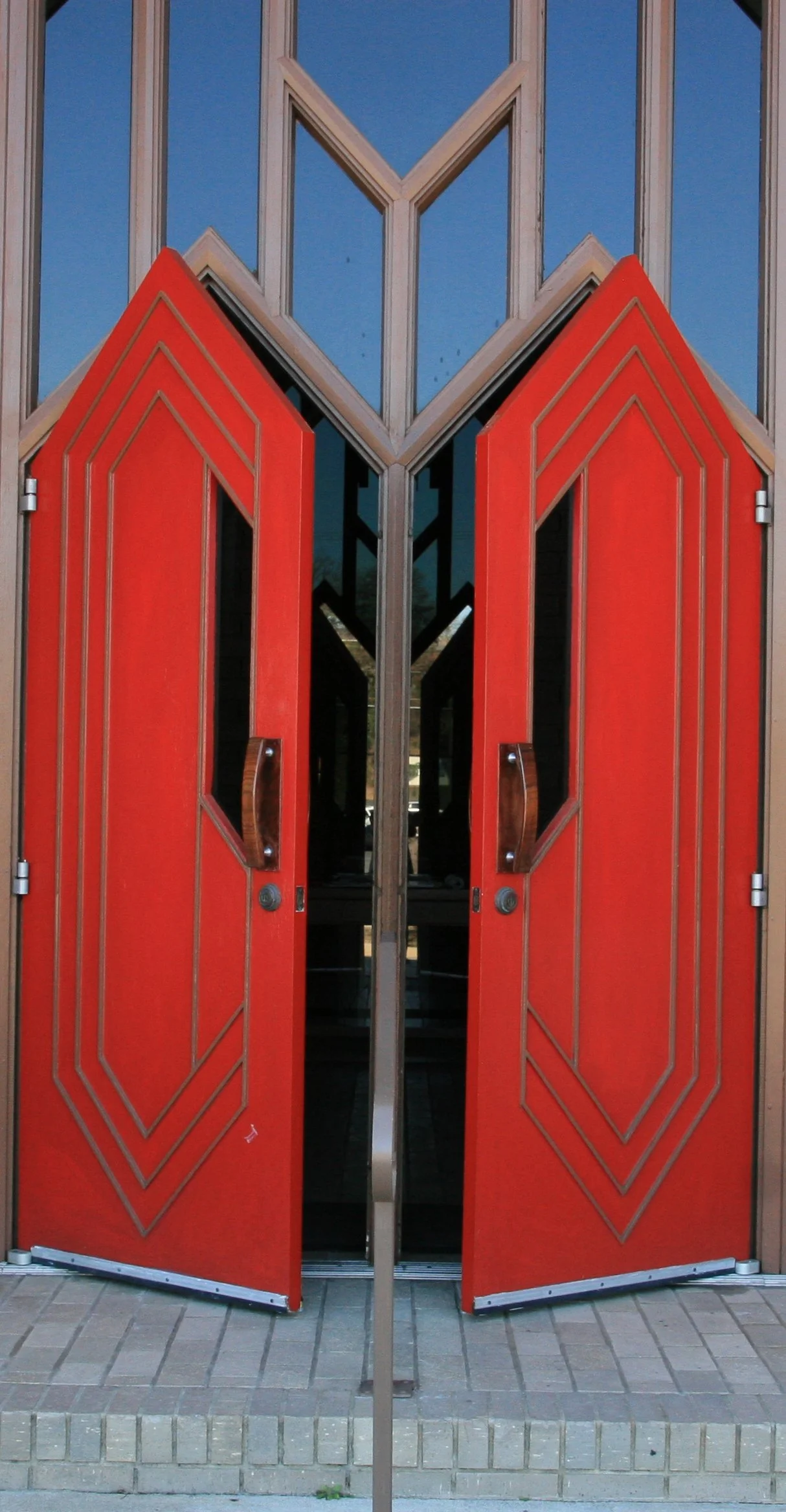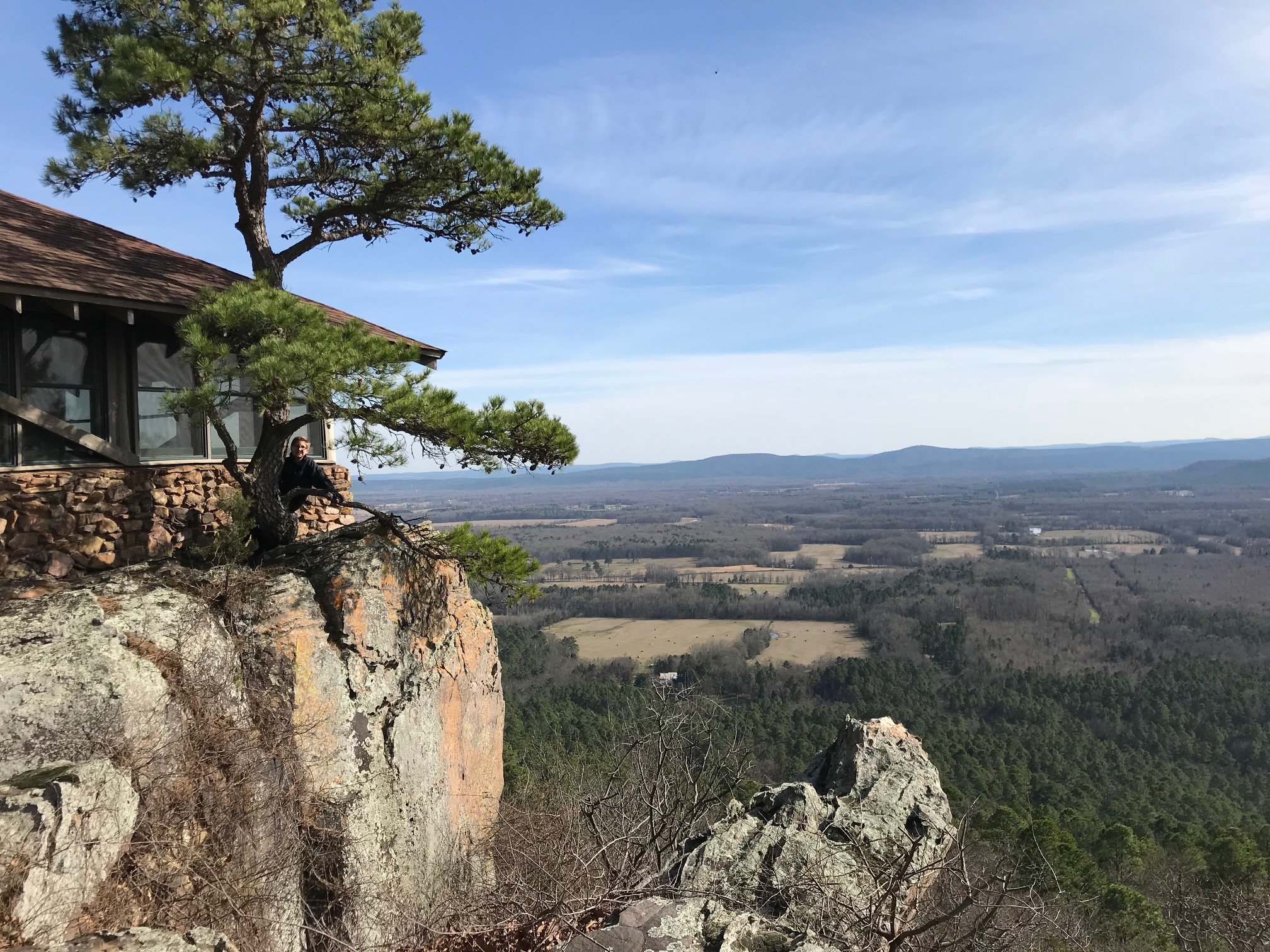Praying in Color
“Here are some reasons to Pray in Color:
1) You want to pray, but words escape you.
2) Sitting still and staying focused in prayer are a challenge.
3) Your body wants to be part of your prayer.
4) You want to hang out with God, but don’t know how.
5) Listening to God feels like an impossible task.
6) Your mind wanders, and your body complains.
7) You want a visual, concrete way to pray.
8) You need a new way to pray.”—Sybil MacBeth in Praying in Color: Drawing a New Path to God (Paraclete Press, 2007).
Gifted speaker and retreat leader Sybil MacBeth takes our prayer life from the left to the right brain. This type of prayer is especially easy for doodlers. It can initially be painful to those who theoretically live out of their left brain—those who are more verbal, orderly, logical, analytical, and methodical thinkers. But praying in color can take that person into a new world of prayer. Those who are more right-brained, creative, imaginative, and artistic will rejoice that they can find a new method of praying that validates who they are.
Sybil offers a multitude of ways to use this kind of prayer: as intercessory prayer, as an Advent prayer calendar, as a way to memorize Scripture, as meditative prayer centered around a word or phrase, as a method for Lectio divina, as discernment, and many more. We start with a simple shape, put a name or word within it, and pray as we add, decorate, expand, or connect parts to the central figure. This adventure in prayer is recommended for the logical person who is stuck and the artistic person whose prayer life seems dry and colorless.
If you are exploring new forms of prayer, Praying in Color is a gift from Sybil MacBeth to us.
GRATITUDE
Joanna. https://www.joannaseibert.com/
